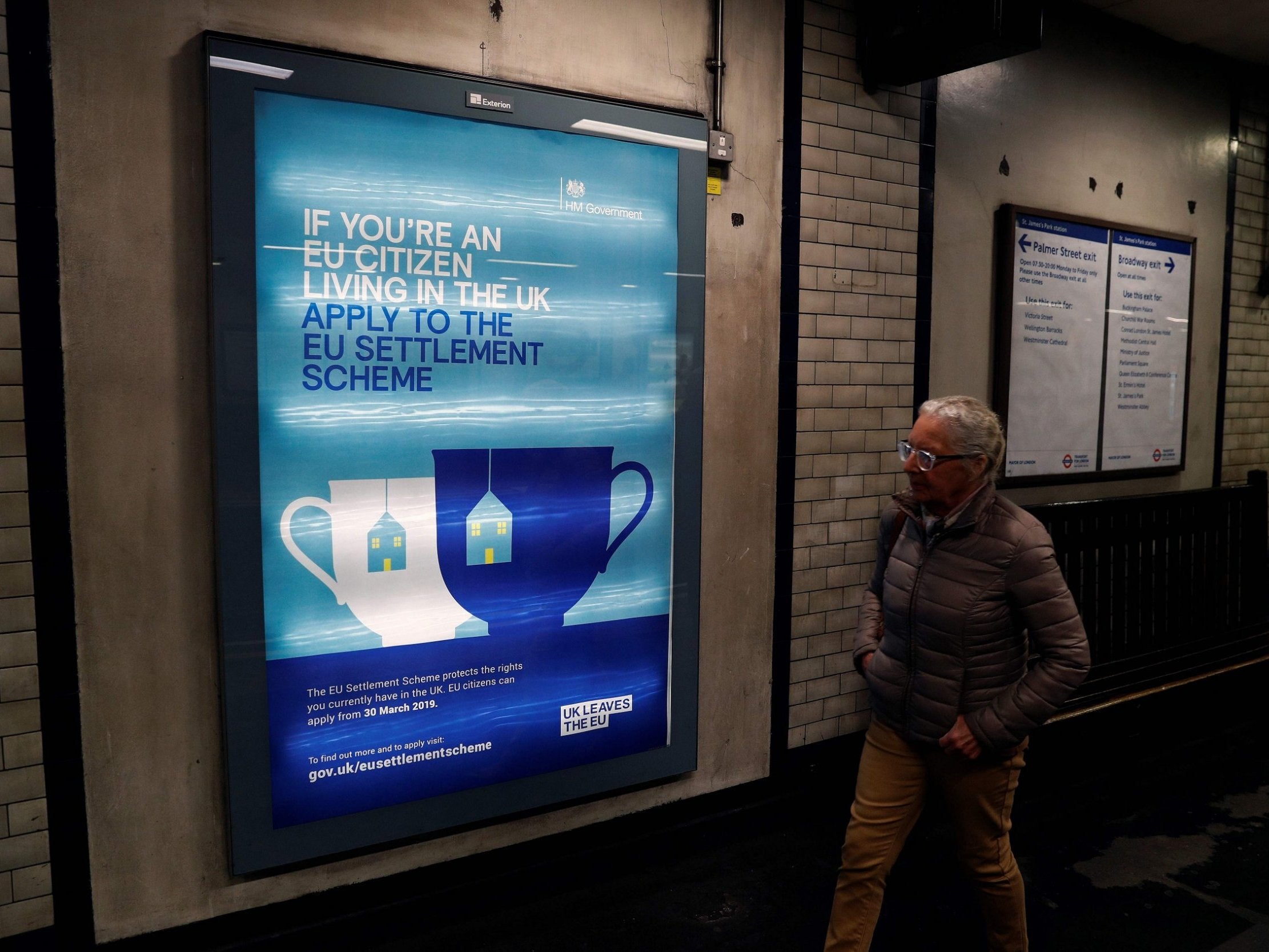700% rise in EU settlement scheme refusals, figures show
One in 10 applicants who received outcomes last month given no immigration status, new data shows

Your support helps us to tell the story
From reproductive rights to climate change to Big Tech, The Independent is on the ground when the story is developing. Whether it's investigating the financials of Elon Musk's pro-Trump PAC or producing our latest documentary, 'The A Word', which shines a light on the American women fighting for reproductive rights, we know how important it is to parse out the facts from the messaging.
At such a critical moment in US history, we need reporters on the ground. Your donation allows us to keep sending journalists to speak to both sides of the story.
The Independent is trusted by Americans across the entire political spectrum. And unlike many other quality news outlets, we choose not to lock Americans out of our reporting and analysis with paywalls. We believe quality journalism should be available to everyone, paid for by those who can afford it.
Your support makes all the difference.The number of people refused post-Brexit immigration status under the EU settlement scheme has surged by 700 per cent in a month, figures show, fuelling concerns about the process less than a year before the deadline by which EU nationals and their family members need to apply.
Data published by the Home Office shows that 1,400 applicants were refused settled status in June, compared with 200 in May. Overall, 2,300 refusals have been issued since the scheme opened in March 2019, meaning 61 per cent of refusals were issued last month alone.
In addition, the number of applicants not granted settled status because their cases were either “withdrawn or void” or “invalid” – meaning they do not have a right of appeal – has also increased significantly, from 7,100 in May to 12,300 in June, a rise of 73 per cent.
Overall, almost one in 10 applicants who received outcomes in June were given no status under the scheme, according to the figures.
While the proportion of people who have not been granted settled status remains proportionately small – at 1.7 per cent of the 3.5 million applications processed overall – campaigners warn that the sudden surge in refusals suggests straightforward cases have been prioritised, while the more complex cases have been put on the back burner.
There are also concerns about the fact that the Home Office has stopped publishing reasons for refusals – which usually come under either eligibility or criminality – on a monthly basis, a move that experts said has led to “less transparency in the system than ever before”. The Home Office said this decision was made in order to enable quicker collation of the figures.
Kuba Jablonowski, a research associate at the3million, a campaign group, told The Independent: “The Home Office has been fast-tracking some applications since the EU settlement scheme started. Now we see what happens when the more complex cases get processed.
“The rise in refusals is staggering. It suggests that politics creeps into immigration decision-making, and that complex cases were not prioritised. They are being decided now when the Covid-19 pandemic and looming deadline increasingly put pressure on the scheme.”
Mr Jablonowski said the steep rise in of cases categorised as void, withdrawn and invalid was “also troubling”, adding: “Unlike refusals, rejections have no rights to appeal and we know that error rates are high for immigration decisions.
“All this shows there are more refusals, fewer grants of status, and less transparency in the system than ever before. And the clock is ticking.”
The Home Office said the sudden increase may be in part because caseworkers work for several months to get in touch with an individual to help them provide the evidence required, making a minimum of three attempts to contact, meaning there are more refusals being issued later in the scheme.
Kevin Foster, the minister for future borders and immigration, said: “EU citizens are our friends, family and neighbours, which is why it’s great more than 3.4 million have already been granted status under the EU settlement scheme and secured their rights in UK law.
“We are always looking for reasons to grant status and refusals are a last resort. However, applications will be refused where an individual is a serious or persistent criminal, or does not meet the eligibility criteria for the scheme.”
Join our commenting forum
Join thought-provoking conversations, follow other Independent readers and see their replies
Comments